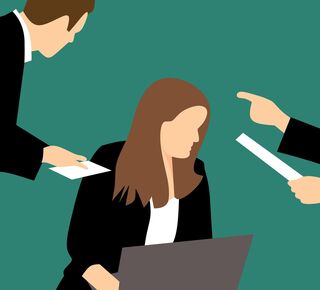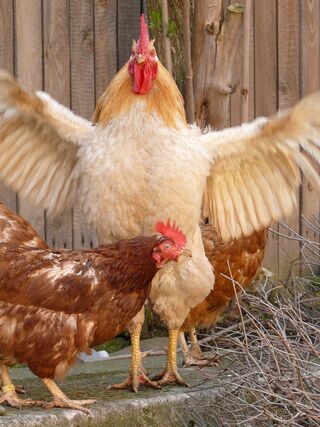Personality
How Do Controlling and Controlled Personalities Interact?
The relationship dance between two common personality types.
Posted January 27, 2021 Reviewed by Jessica Schrader

We know people who are overbearing and controlling and also other people who are inhibited and controlled. What do these labels mean? How do people form such personalities? Are these personalities related in some way? How can each personality style take steps to make corrections?
Controlling People
For such people, control means dominating others in an imperious, overbearing way. Such people can be forceful, bossy, and abusive. They make demands on others with forceful talk, “I need you to do this, now.” If others don’t comply, a controlling person becomes angry and may become vindictive, even verbally or physically abusive.
The controlling person relies on other people to carry out his/her wishes. Often, controlling people have little self-control. They expect others to exert the control for them. Their expertise is in commanding, not in doing. This entire action in commanding others is a projection onto others of control of a task.
Childhood Upbringing
How do controlling people get to be the way they are? In our book, Living on Automatic, Dr. Martin and I describe in detail the childhoods of both controlling and controlled. In brief, we discovered controlling people learn that other people take care of tasks for them so they don’t have to do or even think about them. Their parents shape them by rapidly tending to their every want and desire. They hardly have to ask or cry before some adult fulfills their wants. They learn nothing of how to deal with frustration and they do not learn about taking care of their wants themselves. Someone is always there to take action. If someone does not do for them what they desire, they develop ways of forcefully imposing their will on others.
Moving forward in time to adulthood, we can see their conditioned role remains the same as in childhood. These adults become good at bossily directing others to take care of things. Anxiety appears when they cannot get others to perform the way they expect. When anxious and frustrated, they escalate their demands.

Corrections You Can Make
1. Do more for yourself. If you do some important self-assessment by way of introspection about yourself, you may realize you are a controlling person. You may be able to lessen your control tendencies by appreciating you can do more for yourself than you think. Others do not have to always do things for you.
2. Ask for input. Tone down your approach with others. Be more aware there are two people with ideas and opinions in every interchange with another person. Ask for their ideas on how to do or handle something. Then, with their input, make decisions on who can best carry out what needs to be done, you or him/her, or both of you.
Controlled People
These people are constrained in their emotions, thoughts, and actions. They hold back, curb, and even bottle up themselves, muffling opinions, actions, and responses to other people. Sometimes they are shy and appear mousy or inhibited.
People have to fit together somehow to carry out relationships between them. Controlled people excel at catching the “control” projected by controlling people. Well-controlled people are excellent at maintaining self-control. As well, they believe they can control things for another person.

Childhood Upbringing
As children, a lot was expected of them. Often this meant they were to do things on their own, curb their needs and emotions and not expect help from others Often, they were denied assistance by others. They were expected to manage the emotions, actions, and requests of others. These others were the controlling people, a parent, sibling, or another relative.
Moving forward in time to adulthood, their conditioned role carries forward with them. They are constrained and answer to controlling people, expecting they can do what others need while squelching their own needs.
Anxiety arises when they are overwhelmed by being unable to satisfy demanding others. This anxiety causes them to try again, harder. They wind up exhausted. Then they feel badly about themselves for failing to do the impossible task of controlling something for another person.
Corrections You Can Make
With a good introspective look at yourself, you may appreciate you are a well-controlled person.
- Loosen your control belt. Help yourself by realizing you can lose some control by lessening your self-restraint. Say no to others who want you to cater too much to them.
- Give input to others. Give others your thoughts and opinions. Don’t muzzle your feelings all the time. Tell others when you are sad, anxious, or angry and why, especially if they play a part.
You can interrupt the pathological dance done by controlling and controlled people. With effort, both types of personalities can move away from their control pathology toward improved lives.




